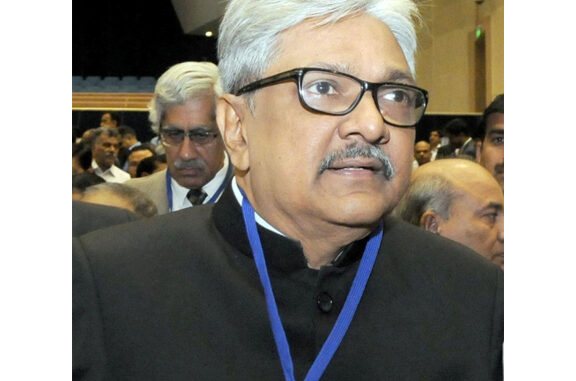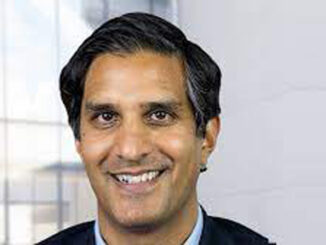
Supreme Court of India says in a landmark judgement
NEW DELHI (TIP): In a historic judgement, a Constitution Bench of the Supreme Court on March 2 directed that the Chief Election Commissioner (CEC) and Election Commissioners (ECs) will be appointed by the President on the advice tendered by a committee of Prime Minister, Leader of Opposition (LoP) in the Lok Sabha or the leader of the single largest party in opposition and the Chief Justice of India (CJI).
The court said “fierce independence, neutrality and honesty” envisaged in the institution of the Election Commission of India (ECI) requires an end to government monopoly and “exclusive control” over appointments to the highest poll body.
The court said the high-powered committee would continue to advise the President on the appointment until the Parliament enacts a law on the appointment process of Election Commissioners. Chief Election Commissioners and Election Commissioners have so far been appointed by the President on the advice of the Prime Minister.
The judgment came on petitions filed through advocates Prashant Bhushan, Kaleeswaram Raj, Ashwini Upadhyay and senior advocate Gopal Sankaranarayanan for an accountable and transparent appointment process. The judgment has now brought the appointment process of Chief Election Commissioners and Election Commissioners on par with that of the CBI Director.
Justice K.M. Joseph, who authored the unanimous judgment for the five-member Bench, said what the Election Commission of India requires are “honest, independent” commissioners who could distinguish right from wrong, those who can “ordinarily and unrelentingly take on the high and mighty and persevere in the righteous path”.
In a concurring opinion, Justice Ajay Rastogi added that the procedural safeguards in place for effecting the removal of a Chief Election Commissioner (CEC) should be extended to the Election Commissioners under the first proviso to Article 324(5) of the Constitution. A CEC, like Supreme Court judges, can be removed from office only by way of a parliamentary process. However, no such protection of tenure is available to the Election Commissioners. In his judgment, Justice Joseph said the fate of political parties and democracy rests in the hands of the Election Commission and “the buck stops at the table of the Chief Election Commissioner and the Election Commissioners”. In a substantive democracy, the power to vote is “more potent than the most powerful gun”. People depend on an honest Election Commissioner, blessed with extraordinary powers, to guard the purity of the electoral process.
“The people of the country look up to the Election Commissioners… A person who is weak-kneed before the powers that be cannot be appointed as an Election Commissioner. A person who is in a state of obligation or feels indebted to the one who appointed him, fails the nation. Such a person cannot have a place in the conduct of elections which forms the foundation of democracy… An Election Commissioner should be one who holds the scale evenly in the stormiest of times by not being servile to the powerful and by coming to the rescue of the weak and the wronged. This would qualify as true independence,” Justice Joseph wrote.
The court noted that 75 years have passed since Independence, yet successive political dispensations which have come to power so far have not lifted a finger to frame a law guiding the appointments to the Election Commission. “Political parties betray a special interest in not forthcoming with a law. The reasons are not far to seek… There is a crucial link between the independence of the Election Commission and the pursuit of power by parties, their consolidation and perpetuation… An insatiable quest to continue in the saddle requires a pliable Election Commission who functions as an unfair and biased overseer of the electoral process which lies at the very heart of democracy… An Election Commissioner who obliges the powers that be, perhaps even offers an assured gateway to the acquisition of power,” Justice Joseph observed.
The court further made a “fervent appeal” to the Parliament and the Union Government to set up a permanent secretariat which draws its expenses directly from the Consolidated Fund of India and not the government.
“One of the ways the Executive can bring the Election Commission to its knees is by starving it off requisite finances much needed for its independent functioning… A vulnerable Commission, faced with the prospects of lack of funds, may kneel to the pressure of the Executive, and that would result in an insidious conquest of an otherwise defiant and independent Election Commission,” Justice Joseph said.
In his opinion, Justice Rastogi noted that the Election Commission has been a multi-member body since 1993. The CEC and the Election Commissioners have “equal participation in transacting the business of the Election Commission” which includes superintendence, direction and control of electoral rolls and conduct of elections to the Parliament, State legislatures, offices of the President and the Vice-President of India.
“It is the need of the hour and advisable to extend the protection available to the CEC under the first proviso to Article 324(5) to other Election Commissioners as well until a law is framed by the Parliament… It is desirable that the grounds of removal of the Election Commissioners shall be the same as those of the CEC and Supreme Court judges,” Justice Rastogi said.
CECs and apex court judges can be removed only by an order of the President passed after an address in each House of Parliament supported by a majority of the total membership of that House and by a majority of not less than two-thirds of members present and voting, and presented to the President in the same session. The grounds of removal are limited to “proved misbehaviors or incapacity”. The judge noted that the conditions of service of Election Commissioners, after appointment, should not be “varied to their disadvantage”. These directions hold that the tenures of the Election Commissioners should not be disturbed in any way. The Election Commission (Conditions of Service of Election Commissioners and Transaction of Business) Act, 1991 requires that the CEC and Election Commissioners must hold the post for a period of six years.
Lately, the Election Commission has seen appointments who have not been able to serve the full six-year period.
(Source: The Hindu)





Be the first to comment